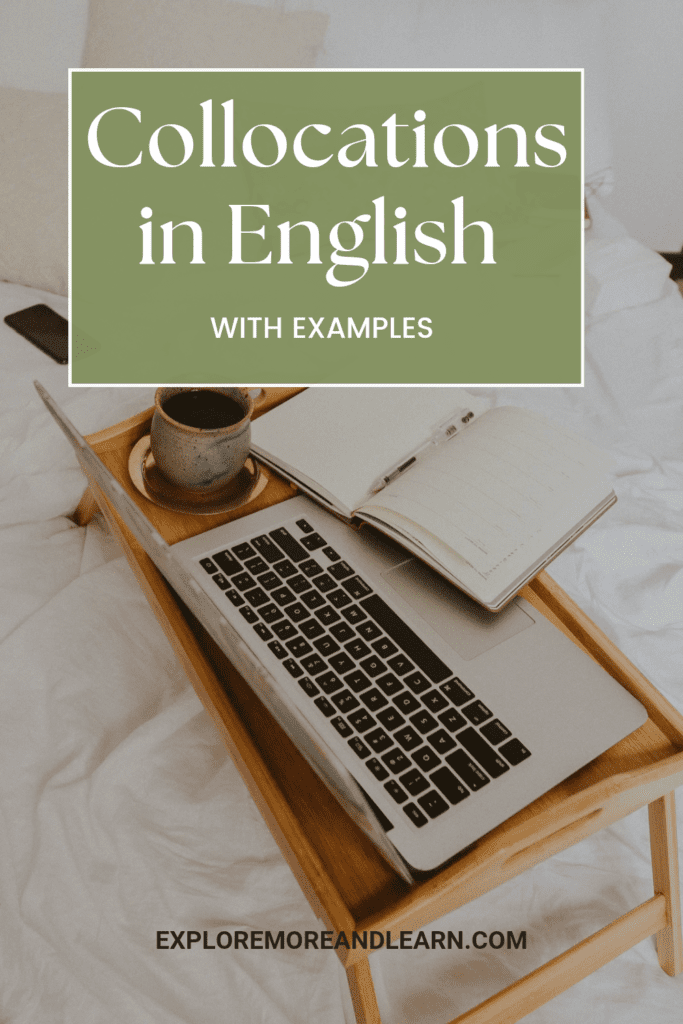What is Collocation?
Importance of Collocation in English
Collocation refers to the habitual or natural pairing of certain words that often occur together due to convention, rather than strict grammatical rules. These word combinations are considered typical in a given language and contribute to the language’s fluency and naturalness. Here are some examples of collocations in English:
• Strong coffee:
“Strong” commonly collocates with “coffee” to describe coffee with a bold flavor.
• Take a shower:
The verb “take” typically collocates with “shower” when referring to the action of bathing.
• Make a decision:
“Make” often pairs with “decision” to describe the process of reaching a conclusion.
• Heavy traffic:
“Heavy” is frequently used with “traffic” to describe congested or busy road conditions.
• Fast food:
“Fast” naturally pairs with “food” to describe quickly prepared meals.
• Break the news:
The phrase “break the news” is used to describe the act of delivering important information.
• Red wine:
“Red” commonly collocates with “wine” to specify a type of wine.
• Strongly recommend:
“Strongly” often collocates with “recommend” when expressing a high level of endorsement.
These are just a few examples of collocations in English. They are important for achieving fluency and natural-sounding language use, as they reflect how words are typically used together by native speakers.
Some More Examples
Here are some more examples of collocations in English:
• Highly skilled:
“Highly” is often used with “skilled” to describe someone with exceptional abilities.
• Bitter cold:
“Bitter” collocates with “cold” to describe extremely cold weather.
• Catch someone’s eye:
This phrase is used when something or someone grabs your attention.
• Keep a promise:
“Keep” typically collocates with “promise” to describe fulfilling one’s commitment.
• Incredible success:
“Incredible” is used with “success” to emphasize an extraordinary level of achievement.
• Take a photo:
“Take” is commonly paired with “photo” when referring to capturing an image.
• Rapidly growing:
“Rapidly” collocates with “growing” to describe something that is expanding quickly.
• Mildly surprised:
“Mildly” is used with “surprised” to indicate a slight or moderate level of surprise.
• Healthy lifestyle:
“Healthy” naturally pairs with “lifestyle” when discussing a way of living that promotes well-being.
• Break the ice:
This phrase means to initiate a conversation or social interaction in a friendly manner.
• Frequent traveler:
“Frequent” is often used with “traveler” to describe someone who travels regularly.
• Harsh criticism:
“Harsh” collocates with “criticism” to indicate severe or severe negative feedback.
• Close friendship:
“Close” naturally pairs with “friendship” to describe a strong and intimate connection between friends.
• Run a business:
“Run” is typically used with “business” when referring to managing or operating a company.

These examples illustrate how specific words tend to go together in English, making language sound more natural and idiomatic when used in these combinations.

That’s great 👍